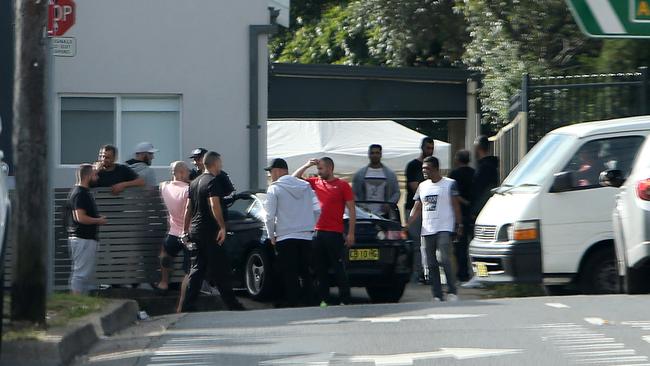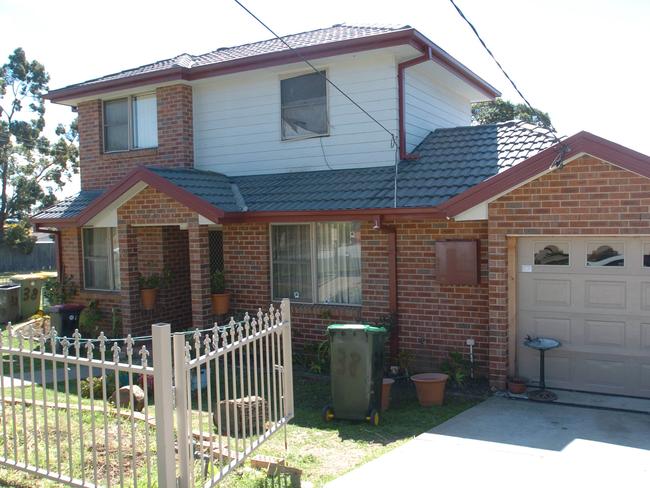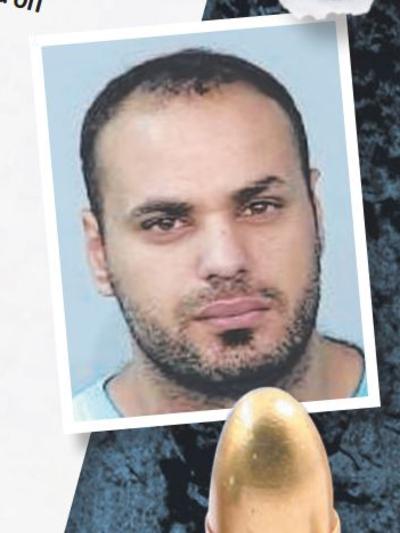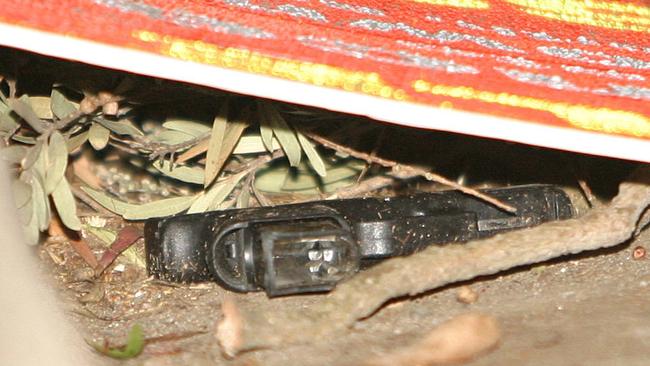How Walid Ahmad and brothers have been known to the law for years
BEFORE Friday, few people would have heard of Walid Ahmad, the gangland figure shot dead in Bankstown. Fewer would have heard of his brothers and their long rap sheets.

News
Don't miss out on the headlines from News. Followed categories will be added to My News.
- MR. BIG’S BRUTAL END: REPRISALS FEARED
- WALID AHMAD’S DEATH SUSPECTED PAYBACK
- CONVICTED KILLER SOUGHT OVER CONDELL PARK SHOOTING
BEFORE Friday, few people would have heard of Walid Ahmad, the gangland figure executed by a masked gunman in Bankstown.
Even fewer would have heard of his family — six brothers with long rap sheets and nicknames like Rock, Brownie, Biggie and Gags.
But mention the name Ahmad to any detective and the response will be a knowing look.
Sydney’s underworld is full of crime families, but it’s a rare few that have been able to stay ahead of the law for as long as the Ahmads.

“They’re too good,” said one officer.
Another detective, now retired, referring to Walid’s murder, said: “It’s a sign of their dominance that they’ve never been the victims of a shooting in this way.”
Walid’s death has provided a rare glimpse into the low-key family that has been the subject of at least 55 intelligence reports and numerous investigations over the years, including drive-by shootings, wholesale drug distribution, witness tampering and, in Walid’s case, murder.
Known as Wally, he was the first of the Ahmads on the police radar. The eldest of the brothers, he was sent to prison in 2005 after pleading guilty to the manslaughter of Sydney man Mayez Dany, three years earlier.
Dany was shot after being summoned to a car-wrecking yard in Greenacre for a meeting following a fight outside DCM nightclub on Oxford St where Walid worked as a bouncer. The two men involved in the fight had been Dany’s nephews.

Walid’s brother, Mahmoud “Brownie” Ahmad, was named as a person of interest in the matter but never charged.
It would be three years before he would gain the same kind of prominence as his brother, jailed over one of the most violent nights of drive-by shootings in Sydney’s history.
At 8.53pm on September 11, 2005, a man named Monzer El-Husseini staggered into Canterbury Hospital with a gunshot wound to his hand and shoulder. He refused to tell the doctors or police what happened.
Five minutes later, 25 bullets from four different guns were fired into El-Husseini’s mother’s house on Lawler St, Panania, piercing the house in 13 places.
Forty minutes later a unit complex at Croydon was sprayed with 22 gunshots that largely missed their target and hit four other apartments, one of which was later determined to be El-Husseini’s home.
Barely half an hour later another 32 shots were fired at the home of El-Husseini’s aunt, before police in the area finally chased the gunmen’s car, a silver Mazda 6, at high-speed through Punchbowl before they lost it.

When the car was found crashed at Condell Park it had a Glock pistol with a full magazine and 17 bullet cases laying loose inside. Another Glock with a 30-bullet magazine was recovered from a gutter nearby, thrown out during the chase.
Three days later a member of the public handed in yet another Glock and a Heckler and Koch self-loading pistol found at an intersection. Forensic evidence led police to “Brownie” Ahmad, who was later charged with shooting El-Husseini.
Detectives learned the shootings started after El-Husseini turned up at the Ahmad family home armed with a gun in each hand and a bullet-proof vest, opening fire at a few people gathered there and, ironically, landing himself in hospital.
El-Husseini was never charged by detectives from Strike Force Newell, which was set up to investigate the incident.
But Ahmad was arrested and put before the courts, landing a lower-than-expected sentence of just a handful of years, which he counted out on his fingers before blowing a kiss to detectives in the gallery.


The incident that night proved to be a turning point in police attitudes towards the family, resulting in a separate investigation, Strike Force Morwick, set up as a means of building a case against the brothers, particularly Ahmad “Rock” Ahmad, who was out of jail at the time.
Despite his reputation, his rap sheet includes offences that carry low penalties: common assault, break, enter and steal, robbery with striking, possessing prohibited drugs and reprisal of a witness.
It was tagged a “priority investigation” by the police commissioner’s office. The allegations of drug distribution and gunfire had all taken place in Riverwood, which fell within the electorate of the newly sworn-in premier Morris Iemma.
The investigation identified five separate drug runs, several managers and dealers, but did not end in any arrests or charges against the brothers.
Since then they have mostly remained off the police radar, considered too difficult to target.
One person who worked on the case described the Morwick investigation as a fact-finding mission that turned into “a black hole”.
They said the reason for the brothers’ dominance was mostly because they supported each other, unlike other Sydney crime families who had been overheard backstabbing and plotting against each other on intercepted conversations.



